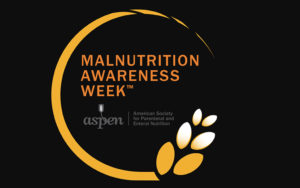
When you see the word malnutrition, you might think of woefully undernourished children in developing nations.
Would you be surprised to hear that people who are overweight or obese can also be malnourished?
It’s true.
Obesity, which affects about 40% of the U.S. adult population, can lead to increased inflammation in the body. This can increase the risk of high blood pressure, heart disease, some cancers, diabetes and other conditions.
Even at optimal health, it can sometimes be a challenge to follow a proper diet.
When illness and other ailments are thrown in, it becomes even more challenging to eat properly. And this can increase the risk of malnutrition.
Burning muscle
Malnutrition develops from a poor diet. It can lead to loss of muscle mass and other health issues.
When a person battling obesity is faced with illness, weight loss is a common outcome. This is often thought of as a good thing. After all, who doesn’t want a healthier weight, even when they’re ill?
When the body is stressed during illness, however, our metabolism shifts from burning fat to burning muscle.
This is important to understand.
Malnutrition can increase the risk of illness and decrease the ability to recover from illness or injury.
Some other important points about the seriousness of malnutrition:
- Malnourished patients admitted to the hospital will experience a longer hospital stay with increased medical costs.
- Those with malnourishment have an increased mortality rate.
- Malnourished patients are nearly twice as likely to be re-admitted back into the hospital soon after being discharged.
- The death rate for malnourished patients in the hospital is three times higher than patients who are not malnourished.
What can you do to help yourself or others minimize the risk of developing malnutrition?
Keep an eye on weight and eating habits for those at risk, including the elderly, overweight or underweight people or those who have been recently hospitalized or facing multiple chronic conditions.
As soon you notice any concerns, bring them up with your doctor immediately. This can help lower the chances of severe malnutrition.
Schedule an appointment with a registered dietitian—they can help you develop a personalized plan to improve your nutrition.

 /a>
/a>
 /a>
/a>
 /a>
/a>